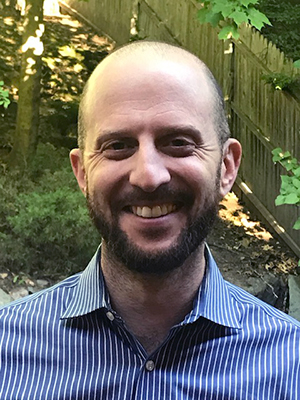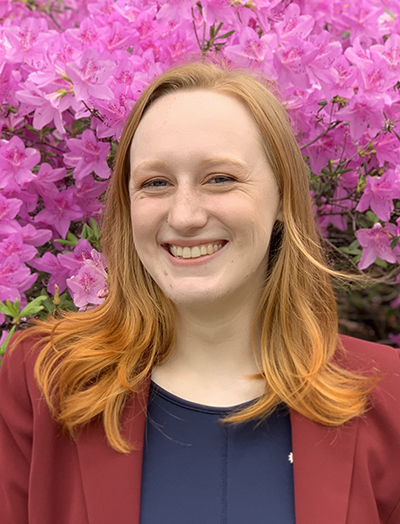Sussman Fund supports graduate scholars’ environmental research

The Edna Bailey Sussman Fund, which has provided funding to Clark University graduate student researchers since 2014, this year awarded 10 fellowships to master’s and doctoral students in the Graduate School of Geography. Their projects range from an examination of the changing wetlands in northeastern Massachusetts to planning for ecological resilience in San Juan, Puerto Rico.
The Sussman Fund supports summer research opportunities related to environmental studies. The funding is limited to just a handful of institutions in addition to Clark: Yale University, Duke University, University of Michigan, State University of New York College of Environmental Science and Forestry, Colorado School of Mines, Scripps Institute of Oceanography at University of California at San Diego, and Virginia Polytechnic Institute. Clark’s Graduate School of Geography is the only geography department to earn funding.
Since 2014, Clark has received nearly $240,000 to support Sussman Fund Graduate Research Fellows. This year, seven geography Ph.D. students and three master’s students received $76,125 to help them complete their projects.
Sussman awards typically fund research work with an off-campus host institution, but the pandemic has forced students to work remotely. “The Sussman Fund has been particularly gracious with their flexibility to provide research opportunities to these students this year,” says Professor Karen Frey, associate director of the Graduate School of Geography. “Since the start of our seven-year relationship with the Sussman Fund, 35 of our graduate students have received funding and much of the research in their resulting master’s theses and doctoral dissertations would not have been possible without Sussman’s incredibly generous support.”

Doctoral student Thomas Bilintoh had planned to do in-person analyses of several decades of change in wetland marshes in Massachusetts, Virginia, and Georgia. Instead, he met weekly on Zoom with his doctoral adviser, Professor R. Gil Pontius, and Professor James Morris, his external adviser from the National Science Foundation’s Long Term Ecological Research network.
“These Zoom sessions facilitated very insightful discussions concerning my research work,” Bilintoh says, “and I am grateful for a rewarding research experience.”

Nathaniel Strosberg’s project compares how two coastal cities in Massachusetts — Boston and Chelsea — pay for infrastructure to manage flooding from sea-level rise. He chose the cities because of their drastic difference in access to resources.
“A critical focus of this project was on the relationship between resource disparities and uneven protection from flooding,” he says, “and all data was gathered through virtual interviews and analyzing online documents.” Strosberg’s adviser is Professor Mark Davidson; his host institution was the Metropolitan Area Planning Council in Boston.

Li Xi, a doctoral student advised by Professor Christopher Williams, says she is grateful to the Sussman fellowship for allowing her to work with The Nature Conservancy on research related to climate change and forest loss. “I investigated and analyzed several significant land cover datasets to deliver quantitative, spatially-explicit, mapped assessments of forest loss between 1989 and 2018,” she says. “This project strengthened my ability to measure and compare forest loss with multiple land cover datasets, and enhanced my understanding of the connection between research and the needs of decision-makers, managers, and policymakers at the state level.”

Master’s degree students receiving Sussman funding include Jessica Strzempko ’20, M.A./GIS ’21, whose project examines how land change patterns are affected by suburbanization and climate change in coastal watersheds. “I initially intended to perform fieldwork as a component of my project, but luckily was able to modify the plan to focus more heavily on analysis using GIS software. I was able to become familiar with new technology and was ready for the remote aspects of the fall semester.” Strzempko’s adviser is Professor Pontius. She also worked with Professor Wilfred Wollheim and the Water Systems Analysis Group at the University of New Hampshire.

Zhen Liu, M.A./GIS ’21, received funding to support his internship with Cloud to Street, a flood mapping company, where he developed computer tools to compare various methods used to detect floods. He says the project let him apply the skills and concepts he learned in the classroom to real-world situations.
Liu worked remotely and met virtually every week with his adviser, Professor Pontius, and his Cloud to Street mentor, Tyler Anderson ’18, M.A./GIS ’19. “Cloud to Street has regular online meetings for staff to share updates,” Liu says. “It was a great opportunity to work in such a warm and friendly atmosphere.” He and Pontius continue to work together on the project and are collaborating on a related journal article.
Other doctoral students receiving awards are:
- Melissa Bollman, “Achieving a just low-carbon transition in the United States: examining the impact of policy design” (Prof. James McCarthy, adviser; Alliance for Green Heat, Takoma Park, Md., host institution)
- Clark Gaffey, “The Effects of Novel Arctic Algae Double Blooms on Benthic Food Supply” (Prof. Karen Frey, adviser; University of Maryland Center for Environmental Science, Solomons, Md., host institution)
- Jaclyn Guz, “Climate Change’s Impact on Forest Resilience” (Prof. Dominik Kulakowski, adviser; Texas Tech University, host institution)
- Richard Kruger, “Planning for Social and Ecological Resilience to Climate Change: Green Infrastructure, Land Tenure, and Environmental Governance in San Juan, Puerto Rico” (Prof. Deborah Martin, adviser; Corporacion del Proyedo Enlace del Cano Martin, San Juan, Puerto Rico, host institution)
Also receiving funding for master’s work was Ahna Knudson for her project, “Using GIS and Satellite Imagery to understand Climate Impacts at Local Scales: Tracking Urban Heat Island, Tree Cover, and Gas Leaks in Worcester, Massachusetts” (Prof. John Rogan, adviser; Worcester Tree Initiative, host institution).


